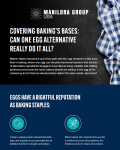Impossible Foods plans ‘rapid rollout’ of Impossible Burger at Canadian restaurants and retailers

Prior to its nationwide availability, Canadians will be able to try the Impossible Burger at a handful of the country’s top restaurants, including Bymark, Maker, Joe Beef, Ufficio, Patois, and CHARCUT.
“The launch of Impossible Burger in Canada is a watershed moment for Impossible Foods — a proof point and accelerator for the international movement toward a sustainable, plant-based food system,” said Impossible Foods’ CEO and Founder Patrick O. Brown.
“I’m also 100% confident that Canada’s world-class chefs will create some of the most delicious and unique Impossible dishes on the planet.”
Nutrition and environmental impact
Impossible Burger contains no animal hormones or antibiotics, and is kosher, halal and gluten-free certified. It has as much protein and bioavailable iron as a comparable serving of ground beef from cows. A 113 g serving of Impossible Burger has 0 mg cholesterol, 14 g of total fat, 8 g of saturated fat and 240 calories. In Canada, a 113 g serving of “regular” ground beef from cows has 75 mg cholesterol, 28 g of total fat, 11 g of saturated fat and 330 calories.
The toll it takes to produce an Impossible Burger is also drastically lower than it is for conventional beef, according to the company. Impossible Burger uses 96% less land, 87% less water, and 89% fewer greenhouse gas emissions compared to conventional beef from cows, claims the company.
Canada poised to become Impossible Foods’ second largest market
Canadians have been clamoring for the Impossible Burger, according to Impossible Foods, which said that the company has received more requests for the product through social media and “passionate emails” than any other country other than its US home market where it’s sold in roughly 30,000 restaurants and more than 10,000 grocery stores. In the case of one Southern California retail chain, the Impossible Burger outsold all brands of ground beef from cows over a one-week period last year.
The company, which has international distribution in Hong Kong, Macau, and Singapore, said Canada will soon become its largest market outside of the US.
Plant-based alternatives have taken center plate for many Canadian consumers, who increasingly are looking to reduce their intake of animal products, suggests data from Statista. Statista data revealed that the average Canadian eats nearly 56 lbs of meat per year with half of Canadians consuming meat daily. This figure follows a downward trend of animal meat consumption taking place in the country (in 1980, annual consumption per capita was 85.5 lbs).
According to a survey of 1,011 Canadian adults conducted by market research firm Insights West, 27% of respondents said they are likely to consider adopting a plant-based diet, when asked about future diet considerations. Younger generations (aged 18-34) are leading the shift towards a plant-based diet, noted Insights West.
Based on this demand from Canadian consumers for plant-based meat alternatives, the company said it is planning a “rapid rollout” of the Impossible Burger in Canadian restaurants and retailers in the months to come, noted the company.






















